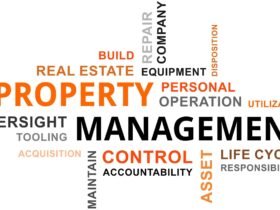In an ever-evolving real estate world, property management courses in the USA are undergoing a significant transformation. As the demand for skilled property managers continues to surge, educational institutions and industry leaders are reimagining how these professionals are trained and equipped for the challenges of tomorrow. This comprehensive guide delves into the current state of property management education, emerging trends, and bold predictions that will shape the future of this dynamic field.
Introduction: The Evolving Landscape of Property Management Education
Property management, once considered a straightforward profession, has evolved into a complex and multifaceted field. As of 2024, the U.S. Bureau of Labor Statistics projects a 9% growth in property, real estate, and community association manager jobs from 2020 to 2030, faster than the average for all occupations. This growth underscores the critical need for robust, forward-thinking property management courses in the USA.
Key Statistics:
● 9% projected job growth in property management (2020-2030)
● Over 380,000 property managers employed in the USA as of 2020
● Median annual wage of $59,660 for property managers in 2023
As we navigate through this article, we’ll explore how property management courses are adapting to meet the demands of an industry in flux, the technological advancements reshaping education, and the skills that will be essential for future property managers. Whether you’re a seasoned professional looking to upskill or a newcomer considering property management courses for beginners, this guide will provide valuable insights into the future of property management education in the USA.
Current State of Property Management Courses in USA
Property management education in the United States is diverse and evolving. Currently, aspiring property managers can choose from a variety of educational pathways, ranging from traditional college degrees to specialized certifications and online courses.
Types of Property Management Courses Available:
1. College Degree Programs: Many universities offer bachelor’s and master’s degrees in real estate with a focus on property management. For instance, Virginia Tech’s B.S. in Property Management is one of the dedicated undergraduate programs in the country.
2. Certificate Programs: Organizations like the Institute of Real Estate Management (IREM) offer well-recognized certifications such as the Certified Property Manager (CPM) designation.
3. Online Courses: Platforms like Udemy, Coursera, and edX provide flexible, self-paced property management courses for beginners and experienced professionals alike.
4. Vocational Training: Some community colleges and vocational schools offer property management programs that combine classroom learning with practical experience.
Current Curriculum Focus:
Online program with a focus on hospitality property management
Today’s property management courses in the USA typically cover a range of topics including:
● Leasing and tenant relations
● Financial management and budgeting
● Property maintenance and operations
● Legal and regulatory compliance
● Marketing and property valuation
Emerging Trends in Property Management Education
Property management courses in the USA are undergoing a radical transformation, driven by technological advancements, changing market demands, and evolving educational methodologies. Let’s explore the key trends shaping the future of property management education.
A. Technology Integration
Virtual Reality (VR) and Augmented Reality (AR)
Property management courses are increasingly incorporating VR and AR technologies to provide immersive learning experiences. For example:
● Virtual Property Tours: Students can practice conducting property inspections and identifying maintenance issues in virtual environments.
● AR Maintenance Training: Augmented reality applications allow students to overlay digital information on real-world equipment, teaching them how to perform repairs and maintenance tasks.
Case Study: The University of Southern California’s Lusk Center for Real Estate has partnered with a company to create virtual property tours for students, allowing them to explore and analyze properties from anywhere in the world.
AI and Machine Learning Applications
Artificial Intelligence is revolutionizing property management courses by:
● Providing personalized learning paths based on individual student performance ● Offering AI-powered chatbots for 24/7 student support and quick answers to common questions
● Simulating complex property management scenarios for students to practice decision-making skills
Smart Home Technology Education
With the rise of smart homes, property management courses are now including modules on:
● IoT (Internet of Things) device management
● Smart home security systems
● Energy efficiency through smart technology
B. Specialization Courses
As the property management field becomes more complex, courses are offering specialized tracks to meet specific market needs:
1. Green Property Management and Sustainability
○ Focus on LEED certification
○ Sustainable building practices
○ Energy-efficient property management strategies
2. Luxury Property Management
○ High-end customer service techniques
○ Exclusive amenity management
○ Privacy and security considerations for high-net-worth clients
3. Commercial Property Management
○ Retail space optimization
○ Office building management in the post-pandemic era
○ Industrial property logistics
C. Online Learning Dominance
The COVID-19 pandemic accelerated the shift towards online learning, a trend that continues to shape property management education:
Growth of Online Property Management Courses in USA
● According to a 2023 report by EducationData.org, 75% of undergraduate students in the U.S. took at least one online course.
● Many reputable institutions now offer fully online property management certificates and degrees.
Benefits of Virtual Learning Environments:
● Flexibility for working professionals
● Access to a wider range of expert instructors
● Reduced costs compared to traditional on-campus programs
Challenges:
● Ensuring practical, hands-on experience
● Maintaining student engagement and motivation
● Adapting assessment methods to online formats
Hybrid Models
To address the challenges of purely online learning, many property management courses are adopting hybrid models that combine:
● Online theoretical instruction
● In-person or virtual reality-based practical training
● Real-world internships or shadowing experiences with property management companies
This approach ensures students gain both the theoretical knowledge and practical skills needed to succeed in the field.
As we look to the future, these emerging trends in property management education are just the beginning. In the next section, we’ll explore predictions for how these courses will continue to evolve to meet the changing needs of the industry and its professionals.
Predictions for the Future of Property Management Courses
As we look ahead, property management courses in the USA are poised for significant changes. These predictions are based on current trends, industry expert opinions, and technological advancements.
A. Curriculum Evolution
Data Analytics and Big Data Integration
Property management courses will increasingly focus on data-driven decision making:
● Predictive Maintenance: Students will learn to use big data to predict and prevent property issues before they occur.
● Market Analysis: Courses will teach advanced data interpretation skills for better understanding market trends and property valuations.
● Tenant Behavior Modeling: Curriculum will include using data to predict tenant needs and behaviors, improving satisfaction and retention.
Crisis Management and Disaster Preparedness
Recent global events have highlighted the need for robust crisis management skills:
● Pandemic response protocols
● Natural disaster preparedness
● Cybersecurity threat management
Emphasis on Soft Skills and Customer Service
While technical skills remain crucial, future courses will place greater emphasis on:
● Emotional intelligence training
● Conflict resolution techniques
● Multicultural communication skills
B. Certification and Accreditation Changes
Potential for Standardized National Certification
● Industry leaders are pushing for a unified, national certification standard for property managers.
● This could lead to more standardized course content across different programs. Increased Recognition of Online Certifications
● As online learning becomes more prevalent, employers are likely to place greater value on reputable online certifications.
● This trend may lead to the development of more rigorous online assessment methods to ensure quality.
Continuous Education Requirements
● Similar to other professional fields, property management may see the introduction of mandatory continuing education credits to maintain certification.
● This could create a boom in short-term, specialized courses for working professionals. C. Technology-Driven Learning Methods
Adoption of Microlearning and Mobile Learning Platforms
● Bite-sized learning modules optimized for mobile devices
● Just-in-time learning resources for immediate application on the job Gamification in Property Management Education
● Interactive simulations mimicking real-world property management scenarios ● Competitive elements to increase engagement and knowledge retention
Example: “PropManager Pro,” a hypothetical game developed by a leading property management software company, allows students to manage virtual properties, dealing with tenant issues, maintenance problems, and financial decisions in a gamified environment.
Use of Chatbots and AI for Personalized Learning Experiences
● AI-powered tutors providing 24/7 support to students
● Personalized learning paths based on individual student performance and career goals
As these predictions materialize, they will significantly impact aspiring property managers and the industry as a whole. In the next section, we’ll explore how these changes will affect those looking to enter the field and what skills future property managers will need to develop.
Impact on Aspiring Property Managers
As property management courses in the USA evolve, aspiring professionals must adapt to new educational paradigms and develop a diverse skill set. Here’s how these changes will affect newcomers to the field:
Changing Skill Requirements
1. Tech Savviness: Future property managers will need to be comfortable with a wide range of technologies, from property management software to IoT devices.
2. Data Analysis: The ability to interpret and act on data will become crucial for making informed decisions.
3. Adaptability: With rapid changes in technology and regulations, the capacity to quickly learn and adapt will be essential.
4. Sustainability Knowledge: Understanding green building practices and energy efficiency will become increasingly important.
5. Virtual Communication: As remote property management becomes more common, strong virtual communication skills will be vital.
Choosing the Right Property Management Course
When selecting property management courses for beginners, aspiring managers should consider:
● Technology Integration: Look for courses that incorporate cutting-edge tools and software used in the industry.
● Practical Experience: Prioritize programs that offer hands-on training or internship opportunities.
● Specialization Options: Choose courses that allow for specialization in areas of personal interest or high market demand.
● Industry Recognition: Opt for courses or certifications that are widely recognized by employers in the field.
● Flexibility: Consider online or hybrid options that allow for balancing education with work or other commitments.
Pro Tip: Research the specific requirements in your target market. Some states have unique licensing requirements for property managers, which may influence your choice of courses.
Industry Partnerships and Practical Experience
The future of property management education lies in strong collaborations between academic institutions and industry players. These partnerships are reshaping how practical experience is integrated into property management courses in the USA.
Growth of Industry-Academia Collaborations
● Curriculum Co-development: Leading property management firms are partnering with universities to design course content that reflects real-world needs. ● Guest Lecture Series: Industry experts are increasingly being brought in to share practical insights with students.
● Sponsored Research: Companies are funding academic research in areas like predictive maintenance and tenant satisfaction, with findings directly informing course content.
Internship and Apprenticeship Programs
Practical experience is becoming a cornerstone of property management education:
| Program Type | Duration | Benefits |
| Summer Internships | 2-3 months | Short-term exposure to various aspects of property management |
| Co-op Programs | 4-6 months | In-depth experience with a single company, often leading to job offers |
| Apprenticeships | 1-2 years | Combineon-the-job training with classroom instruction |
Program Type Duration Benefits
Summer Internships
2-3
months
Short-term exposure to various aspects of property management
Co-op Programs 4-6 months
In-depth experience with a single company, often leading to job offers
Apprenticeships 1-2 years Combine on-the-job training with classroom instruction
Real-world Case Studies and Problem-Solving Scenarios
Property management courses are increasingly incorporating real-world scenarios into their curriculum:
● Virtual Property Management Simulations: Students manage digital properties, dealing with realistic tenant issues, maintenance problems, and financial decisions.
● Case Study Competitions: Schools partner with property management firms to present students with actual challenges faced by the company, with the best solutions being implemented in real life.
● Capstone Projects: Final-year students work on comprehensive projects that involve analyzing and proposing solutions for actual properties in their local market.
By bridging the gap between theoretical knowledge and practical application, these industry partnerships and hands-on experiences ensure that graduates of property management courses in the USA are well-prepared for the challenges of the real world.
Embracing the Future of Property Management Education
As we’ve explored throughout this comprehensive guide, property management courses in the USA are undergoing a profound transformation. The future of this field is bright, dynamic, and full of opportunities for those willing to embrace change and continuous learning.
Key Takeaways:
1. Technological Integration: From virtual reality training to AI-powered personalized learning, technology is revolutionizing how property management is taught and practiced.
2. Specialization Trends: The rise of niche areas like green property management and luxury real estate is creating new opportunities for specialized education and career paths.
3. Online Learning Dominance: The shift towards online and hybrid learning models is making property management education more accessible and flexible than ever before.
4. Industry Partnerships: Collaborations between educational institutions and property management companies are providing students with invaluable real-world experience and insights.
5. Evolving Skill Requirements: Future property managers will need a diverse skill set that combines technical know-how with strong soft skills and adaptability.
Looking Ahead
As property management courses continue to evolve, they will play a crucial role in shaping the future of the real estate industry. Aspiring property managers who stay ahead of these trends and choose forward-thinking educational programs will be well-positioned for success in this dynamic field.
Whether you’re considering property management courses for beginners or looking to advance your existing career, the future of property management education in the USA offers exciting possibilities. By staying informed about industry trends, embracing new technologies, and committing to lifelong learning, you can position yourself at the forefront of this evolving field.
As the real estate world continues to change, one thing remains certain: well-educated, adaptable property managers will always be in high demand. The future of property management courses in the USA is not just about learning new skills—it’s about reimagining the very nature of how we interact with and manage the spaces we live and work in.
Are you ready to be part of this exciting future? The next generation of property management courses awaits, offering you the tools, knowledge, and experiences you need to thrive in this dynamic industry.













Kalden Doma
An internationally renowned thought leader in rediscovering & mind training life skills. Kalden Doma has been delivering inspirational lectures across the globe for over 17 years. A driven entrepreneur, started a mind training academy in 2001. She coaches students, entrepreneurs, & executives.